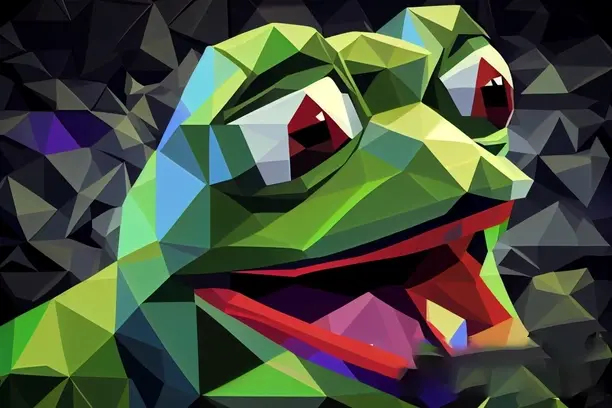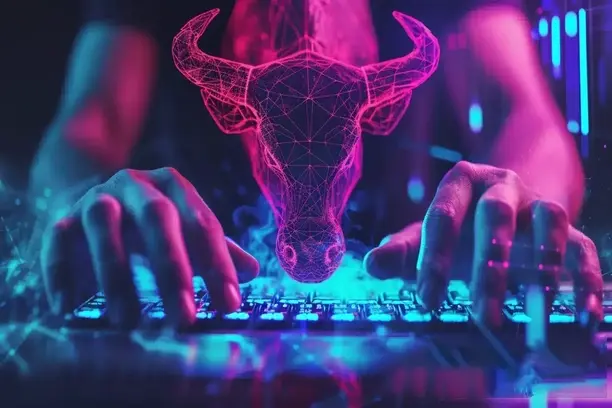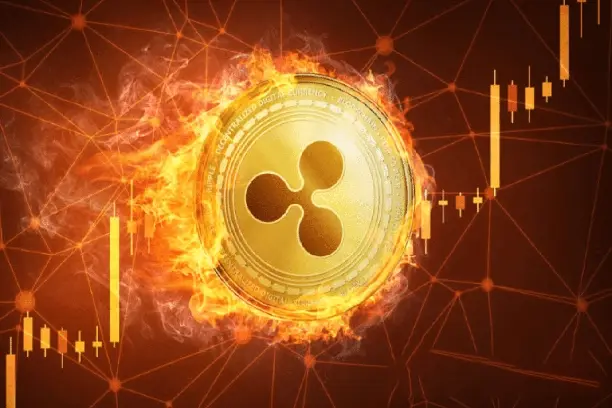NFT Coin and NFT may seem to be closely related, but they actually represent different concepts and functions.NFT (non-homogenized token) is widely used as a blockchain-based digital asset in art, music, gaming, etc., while NFT Coin refers to cryptocurrencies associated with the NFT project that are used to pay for, invest in, or participate in transactions in the ecosystem. This article will delve into the differences and connections between NFT Coin and NFT to help you understand their respective roles and how they can make an impact in the cryptocurrency ecosystem.

What is NFT?
NFT (Non-Fungible Token) is a digital asset based on blockchain technology, which is unique, irreplaceable and indivisible. Unlike traditional cryptocurrencies (e.g., Bitcoin, Ether), NFT represents a unique digital asset, which has led to its widespread use in fields such as artwork, music, and game props.
NFT features:
- uniqueness: Each NFT has a unique digital fingerprint that cannot be copied.
- irreplaceability: Each NFT has a unique value that cannot be exchanged for another NFT.
- traceability: Based on blockchain technology, NFT's ownership can be traced back to its original creator.
NFTs are not limited to works of art; they can also represent digital goods such as virtual land, game props, collectibles, and so on, and are therefore becoming an important form of asset in a variety of innovative industries.
NFT Coin vs.
NFT Coin (NFT Token) is a cryptocurrency associated with NFT, which usually exists as part of the ecosystem of a given NFT project. Unlike NFT itself, NFT Coin does not represent a unique asset, but rather serves as a payment instrument or governance token within the project for purchasing, investing in, or administering the project.
NFT coins work:
- payment instrument: NFT coins are often used as a means of payment for purchasing NFT goods.
- Investing and Trading: Investors holding NFT coins can earn income by trading NFT or participating in NFT related projects.
- ecological governance: Some NFT Coin projects offer decentralized governance features that allow coin holders to participate in project decisions.
NFT coins do not exist only for a single NFT, they are usually tokens specific to a particular NFT platform or project. As such, they are more closely related to NFTs, and the value of NFT coins tends to correlate with the demand and market performance of NFTs.
The main difference between NFT Coin and NFT
Although both NFT Coin and NFT are closely related to cryptocurrencies, they differ significantly in their functions and uses.
1. Differences in nature
- NFT: represents a unique digital asset that can be a work of art, a virtual object, or another form of content that cannot be replaced.
- NFT Coin: is a cryptocurrency used for payments, transactions or governance in the NFT ecosystem.
2. Different modes of exchange
- NFT: Non-exchangeable, each NFT has a unique value.
- NFT Coin: Interchangeable, similar to traditional cryptocurrencies, with substitutability.
3. Different scenarios of use
- NFT: Suitable for art trading, digital collection, game props and other fields.
- NFT Coin: Functions such as payment, investment and transaction applicable to project ecology.
How can I participate in NFT Coin and NFT trading?
1. Choosing the right NFT platform
To buy NFT or participate in NFT coin trading, you first need to choose a suitable platform. There are many platforms in the market that support NFT trading, such as OpenSea, Rarible, etc. There are also many platforms that specialize in issuing NFT coins. Choose a reliable platform to ensure security and liquidity.
2. Creation of wallets
Trading NFT or NFT coins usually requires a crypto wallet, commonly used wallets are MetaMask, Trust Wallet and others. You need to manage your NFT assets and NFT coins through these wallets.
3. Understanding market trends
The NFT market is volatile, so it is important to keep an eye on market developments and price fluctuations when purchasing or investing in NFT coins. The price of NFT coins and NFT works on the platform is usually influenced by supply and demand, platform development and creators.
NFT Coin and the Future of NFT
With the continuous development of blockchain technology, the future potential of NFT and NFT Coin is huge. not only can NFT be expanded to more fields, such as virtual reality, movie copyrights, etc., but it may also be deeply integrated with the ecosystem of NFT Coin to create a more diversified digital economic model.
Trend Outlook:
- cross-chain interoperability: With the development of blockchain technology, NFT and NFT Coin may be able to achieve cross-chain transactions, increasing liquidity and user participation.
- large scale application: NFT and NFT Coin are not only limited to art and gaming, but may have wider applications in the future in areas such as identity authentication and copyright protection.
- decentralized autonomy: NFT projects are likely to increasingly adopt decentralized autonomous organizations (DAOs) that allow coin holders and users holding NFTs to participate in platform decisions.
concluding remarks
NFT and NFT Coin serve different roles as important components of the digital asset and cryptocurrency ecosystems.NFT is an irreplaceable and unique digital asset, while NFT Coin serves as a payment and governance tool for the platform ecosystem. Understanding their differences and connections can help investors and users better participate in this innovative digital economy. Whether you are collecting digital art or participating in an ecological project, understanding the relationship between NFT and NFT Coin is an important step in stepping into the crypto world.







